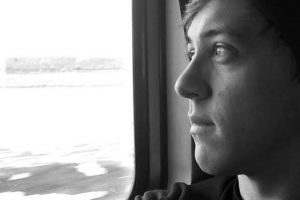I grew up in Chapel Hill North Carolina, a mere three hours from Bertie County, yet the first time I learned about Bertie was working on this film. For many of us in the state, Eastern North Carolina and rural communities like Bertie are places we stop on the way to the beach for barbeque or boiled peanuts, and not much more.
Working on this film I’ve been amazed not only by how little I knew about this community, but also how fortunate I have been in my life, largely due to circumstances I had no control over.
I am multiracial – white and Afro-Jamaican – yet I look like a Swedish Ski Instructor. I came of age living in the skin of privilege, surrounded by good schools, economic opportunity and mentors. I was provided the space to make mistakes and still find success. I wore hoodies, occasionally skipped class, went to parties, slept in. I have been known to break traffic laws with relative impunity. Yet, I was not criminalized by the media or justice system based on my zip code or the color of my skin, but instead raised to feel entitled to all the promises that our country strives for in its most hopeful rhetoric. Had I looked a little different or been born a few miles away, I might be in this story, instead of helping to tell it.
Growing up is hard enough without the pressure of poverty or the burden of historical injustice or the ancestral trauma of slavery. In Bertie the scars are still fresh, the cuts still being made. One does not need to travel far back in time to see the impact of Jim Crow, racist labor and agricultural policy, and a biased criminal justice system. Plantations replaced by tenant farming, replaced by factory work, replaced by a prison industrial complex. We have traded field sacks for handcuffs and cotton for young men. Generation after generation – by law, by war, by the heat of the sun – black men, fathers, brothers, role-models have been removed from our society. And yet, we have the audacity to wonder why so many young black boys struggle to become successful men?
Too often in researching this film and in rough cut screenings or funding rejections we heard people say: “It’s not a race issue, it’s a poverty issue.” Or, “It’s not poverty, it’s education.” The truth is it is all of these things. And more. It’s geographic isolation, educational disenfranchisement, mass incarceration, single mothers, slavery, family, faith, voting rights, globalization. It’s also just adolescence. These issues layer and weave together like kudzu, and play out in people’s daily lives in subtle but very real ways. These are complex issues and addressing them requires uncomfortable and complicated conversations.
I hope that this film creates the space and empathy needed to have them.


